Abstract:
Students learn not only directly from their teachers and books, but also by using their computers, tablets, and phones. Monitoring these learning environments creates new...Show MoreMetadata
Abstract:
Students learn not only directly from their teachers and books, but also by using their computers, tablets, and phones. Monitoring these learning environments creates new opportunities for teachers to track students' progress. In particular, this article is based on gathering real-time events as students interact with learning tools and materials in electronic devices, both in and out of class. Our study shows that the analysis of these events can provide teachers with week-by-week predictions of their students' final grades and help them to identify, at an early stage, those students at risk of failing. A blended environment university course in which students are expected to work autonomously out of class, but also attend face-to-face lessons was used as the case study. Results show that predictions are reasonably accurate even during the first weeks of the course.
Published in: IEEE Transactions on Learning Technologies ( Volume: 17)
Funding Agency:
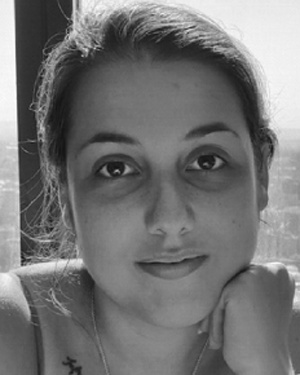
Department of Telematic Engineering, Universidad Carlos III de Madrid, Leganés, Spain
Lucia Uguina-Gadella received the B.Eng. degree in telecommunication from the Universidad Carlos III de Madrid, Leganés, Spain, in 2016, and the M.Eng. degree in computational and mathematics from Universitat Rovira i Virgili, Tarragona, Spain, in 2018. She is currently working toward the Ph.D. degree in Learning analytics and machine learning applied to events and time series with the University Carlos III de Madrid.
Her ...Show More
Lucia Uguina-Gadella received the B.Eng. degree in telecommunication from the Universidad Carlos III de Madrid, Leganés, Spain, in 2016, and the M.Eng. degree in computational and mathematics from Universitat Rovira i Virgili, Tarragona, Spain, in 2018. She is currently working toward the Ph.D. degree in Learning analytics and machine learning applied to events and time series with the University Carlos III de Madrid.
Her ...View more
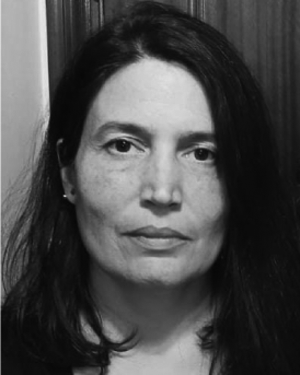
Department of Telematic Engineering, Universidad Carlos III de Madrid, Leganés, Spain
Iria Estévez-Ayres received the Telecommunication Engineering degree from the Universidade de Vigo, Vigo, Spain, in 2001, and the Ph.D. degree from the Universidad Carlos III de Madrid, Leganés, Spain, in 2007.
She is currently an Associate Professor with the Department of Telematics Engineering, Universidad Carlos III de Madrid. Her main research interests include MOOCs and the applicability of technology-enhanced techniq...Show More
Iria Estévez-Ayres received the Telecommunication Engineering degree from the Universidade de Vigo, Vigo, Spain, in 2001, and the Ph.D. degree from the Universidad Carlos III de Madrid, Leganés, Spain, in 2007.
She is currently an Associate Professor with the Department of Telematics Engineering, Universidad Carlos III de Madrid. Her main research interests include MOOCs and the applicability of technology-enhanced techniq...View more
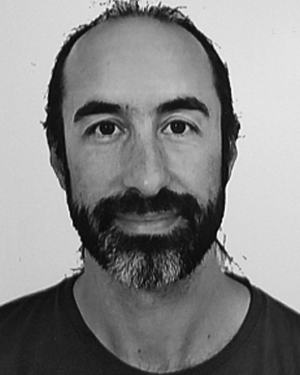
Department of Telematic Engineering, Universidad Carlos III de Madrid, Leganés, Spain
Jesús Arias Fisteus received the M.Sc. degree in telecommunication engineering from the University of Vigo, Vigo, Spain, in 2001, and the Ph.D. degree in communication technologies from the Universidad Carlos III de Madrid, Leganés, Spain, in 2005.
He is currently an Associate Professor with Telematic Engineering Department, Universidad Carlos III de Madrid. He has participated in several international and national researc...Show More
Jesús Arias Fisteus received the M.Sc. degree in telecommunication engineering from the University of Vigo, Vigo, Spain, in 2001, and the Ph.D. degree in communication technologies from the Universidad Carlos III de Madrid, Leganés, Spain, in 2005.
He is currently an Associate Professor with Telematic Engineering Department, Universidad Carlos III de Madrid. He has participated in several international and national researc...View more
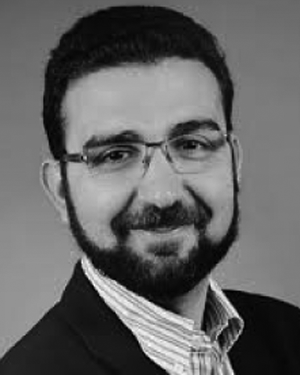
Department of Telematic Engineering, Universidad Carlos III de Madrid, Leganés, Spain
Carlos Alario-Hoyos received the M.S. and Ph.D. degrees in information and communication technologies from the Universidad de Valladolid, Valladolid, Spain, in 2007 and 2012, respectively.
He is currently an Associate Professor with the Department of Telematics Engineering, Universidad Carlos III de Madrid, Leganés, Spain. His main research interests include MOOCs, microcredentials, interoperability, and software education...Show More
Carlos Alario-Hoyos received the M.S. and Ph.D. degrees in information and communication technologies from the Universidad de Valladolid, Valladolid, Spain, in 2007 and 2012, respectively.
He is currently an Associate Professor with the Department of Telematics Engineering, Universidad Carlos III de Madrid, Leganés, Spain. His main research interests include MOOCs, microcredentials, interoperability, and software education...View more
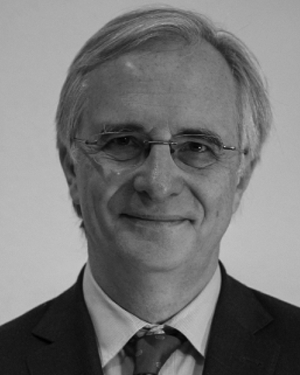
Department of Telematic Engineering, Universidad Carlos III de Madrid, Leganés, Spain
Carlos Delgado Kloos (Senior Member, IEEE) received the Ph.D. degree in computer science from Technische Universität München, Munich, Germany, and the Ph.D. degree in telecommunications engineering from the Universidad Politécnica de Madrid, Madrid, Spain, in 1986.
He is currently a Full Professor of Telematics Engineering with the Universidad Carlos III de Madrid, Leganés, Spain, where he is also the Director of the GAST ...Show More
Carlos Delgado Kloos (Senior Member, IEEE) received the Ph.D. degree in computer science from Technische Universität München, Munich, Germany, and the Ph.D. degree in telecommunications engineering from the Universidad Politécnica de Madrid, Madrid, Spain, in 1986.
He is currently a Full Professor of Telematics Engineering with the Universidad Carlos III de Madrid, Leganés, Spain, where he is also the Director of the GAST ...View more

Department of Telematic Engineering, Universidad Carlos III de Madrid, Leganés, Spain
Lucia Uguina-Gadella received the B.Eng. degree in telecommunication from the Universidad Carlos III de Madrid, Leganés, Spain, in 2016, and the M.Eng. degree in computational and mathematics from Universitat Rovira i Virgili, Tarragona, Spain, in 2018. She is currently working toward the Ph.D. degree in Learning analytics and machine learning applied to events and time series with the University Carlos III de Madrid.
Her research interests include learning analytics and machine learning applied to events and time series.
Lucia Uguina-Gadella received the B.Eng. degree in telecommunication from the Universidad Carlos III de Madrid, Leganés, Spain, in 2016, and the M.Eng. degree in computational and mathematics from Universitat Rovira i Virgili, Tarragona, Spain, in 2018. She is currently working toward the Ph.D. degree in Learning analytics and machine learning applied to events and time series with the University Carlos III de Madrid.
Her research interests include learning analytics and machine learning applied to events and time series.View more

Department of Telematic Engineering, Universidad Carlos III de Madrid, Leganés, Spain
Iria Estévez-Ayres received the Telecommunication Engineering degree from the Universidade de Vigo, Vigo, Spain, in 2001, and the Ph.D. degree from the Universidad Carlos III de Madrid, Leganés, Spain, in 2007.
She is currently an Associate Professor with the Department of Telematics Engineering, Universidad Carlos III de Madrid. Her main research interests include MOOCs and the applicability of technology-enhanced techniques to active learning courses.
Iria Estévez-Ayres received the Telecommunication Engineering degree from the Universidade de Vigo, Vigo, Spain, in 2001, and the Ph.D. degree from the Universidad Carlos III de Madrid, Leganés, Spain, in 2007.
She is currently an Associate Professor with the Department of Telematics Engineering, Universidad Carlos III de Madrid. Her main research interests include MOOCs and the applicability of technology-enhanced techniques to active learning courses.View more

Department of Telematic Engineering, Universidad Carlos III de Madrid, Leganés, Spain
Jesús Arias Fisteus received the M.Sc. degree in telecommunication engineering from the University of Vigo, Vigo, Spain, in 2001, and the Ph.D. degree in communication technologies from the Universidad Carlos III de Madrid, Leganés, Spain, in 2005.
He is currently an Associate Professor with Telematic Engineering Department, Universidad Carlos III de Madrid. He has participated in several international and national research projects. He is the author of publications in top international journals and conferences in the fields of technology-enhanced learning, semantic web, networking, and distributed systems.
Jesús Arias Fisteus received the M.Sc. degree in telecommunication engineering from the University of Vigo, Vigo, Spain, in 2001, and the Ph.D. degree in communication technologies from the Universidad Carlos III de Madrid, Leganés, Spain, in 2005.
He is currently an Associate Professor with Telematic Engineering Department, Universidad Carlos III de Madrid. He has participated in several international and national research projects. He is the author of publications in top international journals and conferences in the fields of technology-enhanced learning, semantic web, networking, and distributed systems.View more

Department of Telematic Engineering, Universidad Carlos III de Madrid, Leganés, Spain
Carlos Alario-Hoyos received the M.S. and Ph.D. degrees in information and communication technologies from the Universidad de Valladolid, Valladolid, Spain, in 2007 and 2012, respectively.
He is currently an Associate Professor with the Department of Telematics Engineering, Universidad Carlos III de Madrid, Leganés, Spain. His main research interests include MOOCs, microcredentials, interoperability, and software educational tools.
Carlos Alario-Hoyos received the M.S. and Ph.D. degrees in information and communication technologies from the Universidad de Valladolid, Valladolid, Spain, in 2007 and 2012, respectively.
He is currently an Associate Professor with the Department of Telematics Engineering, Universidad Carlos III de Madrid, Leganés, Spain. His main research interests include MOOCs, microcredentials, interoperability, and software educational tools.View more

Department of Telematic Engineering, Universidad Carlos III de Madrid, Leganés, Spain
Carlos Delgado Kloos (Senior Member, IEEE) received the Ph.D. degree in computer science from Technische Universität München, Munich, Germany, and the Ph.D. degree in telecommunications engineering from the Universidad Politécnica de Madrid, Madrid, Spain, in 1986.
He is currently a Full Professor of Telematics Engineering with the Universidad Carlos III de Madrid, Leganés, Spain, where he is also the Director of the GAST research group, the Director of the UNESCO Chair on “Scalable Digital Education for All,” and the Vice-President for Strategy and Digital Education. He is also the Manager of ICT research projects with Spanish Ministry, participated in many research projects on educational technology, and carried out research stays at several universities, such as Harvard, MIT, Munich, and Passau.
Carlos Delgado Kloos (Senior Member, IEEE) received the Ph.D. degree in computer science from Technische Universität München, Munich, Germany, and the Ph.D. degree in telecommunications engineering from the Universidad Politécnica de Madrid, Madrid, Spain, in 1986.
He is currently a Full Professor of Telematics Engineering with the Universidad Carlos III de Madrid, Leganés, Spain, where he is also the Director of the GAST research group, the Director of the UNESCO Chair on “Scalable Digital Education for All,” and the Vice-President for Strategy and Digital Education. He is also the Manager of ICT research projects with Spanish Ministry, participated in many research projects on educational technology, and carried out research stays at several universities, such as Harvard, MIT, Munich, and Passau.View more


